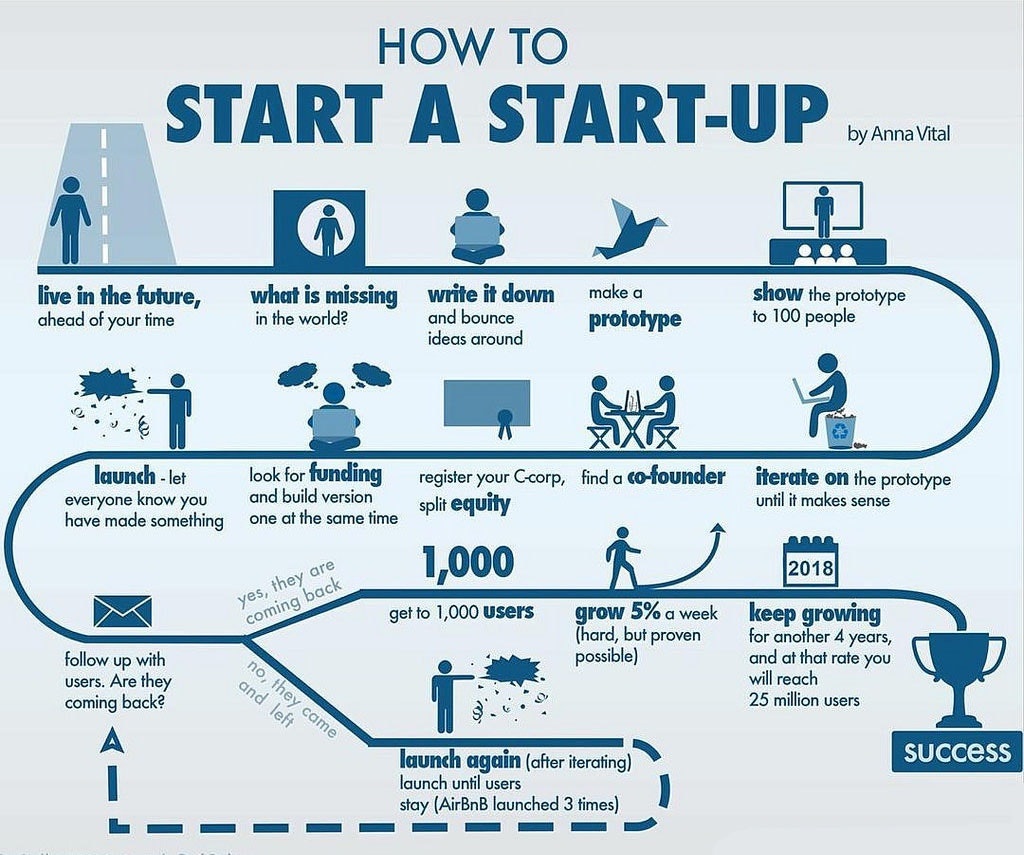How to Fund Your Startup delves into the various funding avenues available to new businesses, offering insights and strategies to navigate the complex world of startup financing.
From crowdfunding to venture capital, angel investors, and bootstrapping, this guide equips entrepreneurs with the knowledge needed to secure financial support and propel their startups to success.
Crowdfunding
Crowdfunding is a popular method for startups to raise capital by collecting small amounts of money from a large number of individuals or organizations. This approach allows entrepreneurs to bypass traditional sources of funding, such as banks or venture capitalists, and instead reach out directly to potential backers through online platforms.
Different Platforms for Crowdfunding
- Kickstarter: One of the most well-known crowdfunding platforms, Kickstarter focuses on creative projects and products. Entrepreneurs set a funding goal and offer rewards to backers in exchange for their support.
- Indiegogo: Another popular platform, Indiegogo allows entrepreneurs to raise funds for a wide range of projects, including tech innovations, social causes, and more. It offers both fixed and flexible funding options.
- GoFundMe: While commonly used for personal fundraising, GoFundMe can also be utilized by startups to raise money for specific business needs or charitable causes. It is known for its ease of use and social sharing features.
Benefits and Challenges of Crowdfunding
Using crowdfunding to fund a startup has several advantages and drawbacks that entrepreneurs should consider:
- Benefits:
- Access to a large pool of potential investors who are passionate about the product or idea.
- Validation of the concept by gauging public interest and demand before launching the product.
- Potential for creating a loyal community of supporters who can provide feedback and spread the word about the startup.
- Challenges:
- High competition on popular crowdfunding platforms, making it challenging to stand out among other campaigns.
- The need to continuously promote the campaign and engage with backers to maintain momentum and reach the funding goal.
- Potential risks of intellectual property theft or idea replication when sharing detailed information about the startup publicly.
Venture Capital
Venture capital is a form of financing provided by investors to startup companies and small businesses that are believed to have long-term growth potential. In exchange for the funding, venture capitalists typically receive equity in the company.
How Venture Capital Works
Venture capital firms raise money from high-net-worth individuals, corporations, and institutional investors to form a fund. This fund is then used to invest in early-stage companies with high growth potential. Venture capitalists provide not only funding but also mentorship, expertise, and access to their network to help the startups grow and succeed.
Criteria Venture Capitalists Look For
– Strong team: Venture capitalists look for a talented and experienced team with a track record of success.
– Scalable business model: Startups with the potential to scale rapidly and generate significant returns are attractive to venture capitalists.
– Addressable market: VCs want to see that the startup is targeting a large and growing market.
– Unique value proposition: Startups with a unique product or service that solves a pressing problem have a higher chance of attracting venture capital.
– Exit strategy: VCs want to know how they will eventually realize a return on their investment, whether through acquisition, IPO, or other means.
Examples of Successful Startups Funded by Venture Capital
– Uber: One of the most well-known examples of a startup funded by venture capital, Uber revolutionized the transportation industry.
– Airbnb: Another success story, Airbnb disrupted the hospitality sector and became a global phenomenon.
– SpaceX: Elon Musk’s aerospace company SpaceX received venture capital funding and is now a leader in the space industry.
– Dropbox: The cloud storage company Dropbox raised venture capital and went on to achieve great success in the tech world.
Angel Investors: How To Fund Your Startup
Angel investors play a crucial role in funding startups by providing capital in exchange for ownership equity or convertible debt. They are typically high-net-worth individuals who invest their personal funds into early-stage companies with high growth potential.
Finding and Approaching Angel Investors
- Networking: Attend startup events, pitch competitions, and angel investor meetups to connect with potential investors.
- Online Platforms: Utilize angel investor platforms like AngelList, SeedInvest, and Gust to showcase your startup and attract investors.
- Introduction: Seek introductions from mutual connections or industry mentors to establish credibility and trust with angel investors.
- Pitch Deck: Prepare a compelling pitch deck outlining your business idea, market potential, team, and financial projections to present to angel investors.
- Follow-up: Maintain regular communication and provide updates on your startup’s progress to keep angel investors engaged and informed.
Advantages and Disadvantages of Working with Angel Investors
- Advantages:
-
Quick Funding:
Angel investors can provide capital faster than traditional sources like venture capital firms or banks.
-
Expertise and Mentorship:
Many angel investors have valuable industry experience and can offer guidance and mentorship to help startups succeed.
-
Flexible Terms:
Angel investors may be more willing to negotiate terms and invest in riskier ventures compared to institutional investors.
-
- Disadvantages:
-
Lack of Control:
Angel investors typically require ownership equity, which means giving up a portion of control and decision-making power in the company.
-
High Expectations:
Angel investors expect a high return on their investment and may have aggressive growth targets for the startup.
-
Personal Relationships:
Working with angel investors can involve personal dynamics and conflicts, especially if expectations are not aligned.
-
Bootstrapping
Bootstrapping is a method used by startups to fund their businesses without relying on external investments. Instead, entrepreneurs use their own resources, such as personal savings, revenue from early sales, or loans, to get their business off the ground.
Tips for Effective Bootstrapping
- Focus on generating revenue early on: Prioritize sales and customer acquisition to bring in cash flow that can be reinvested into the business.
- Minimize expenses: Keep costs low by working from home, using open-source software, and negotiating favorable terms with suppliers.
- Leverage existing resources: Make the most of what you have, whether it’s skills, connections, or equipment, to avoid unnecessary spending.
- Stay lean and agile: Be willing to adapt quickly to changing market conditions and customer feedback to avoid wasting time and money on unprofitable ventures.
Success Stories of Bootstrapped Startups, How to Fund Your Startup
- Basecamp: The project management software company was bootstrapped by its founders and grew into a successful business without taking any outside funding.
- Mailchimp: The email marketing platform started as a side project and was built without any external investments, eventually becoming a leading player in its industry.
- Spanx: Founder Sara Blakely used her personal savings to launch the shapewear company, which went on to achieve massive success without the need for venture capital.
Ending Remarks

As we conclude our exploration of funding options for startups, it becomes evident that a combination of these strategies tailored to the specific needs of a business can lead to sustainable growth and long-term success in the competitive entrepreneurial landscape.
Helpful Answers
How can crowdfunding benefit a startup?
Crowdfunding allows startups to raise capital from a large pool of individuals, providing validation for their business idea and creating a community of supporters.
What criteria do venture capitalists consider when investing in startups?
Venture capitalists typically look for startups with high growth potential, a strong team, a scalable business model, and a clear path to profitability.
How can entrepreneurs effectively bootstrap their startups?
Entrepreneurs can bootstrap their startups by minimizing costs, focusing on revenue generation, and being resourceful in leveraging existing assets to grow their business.






